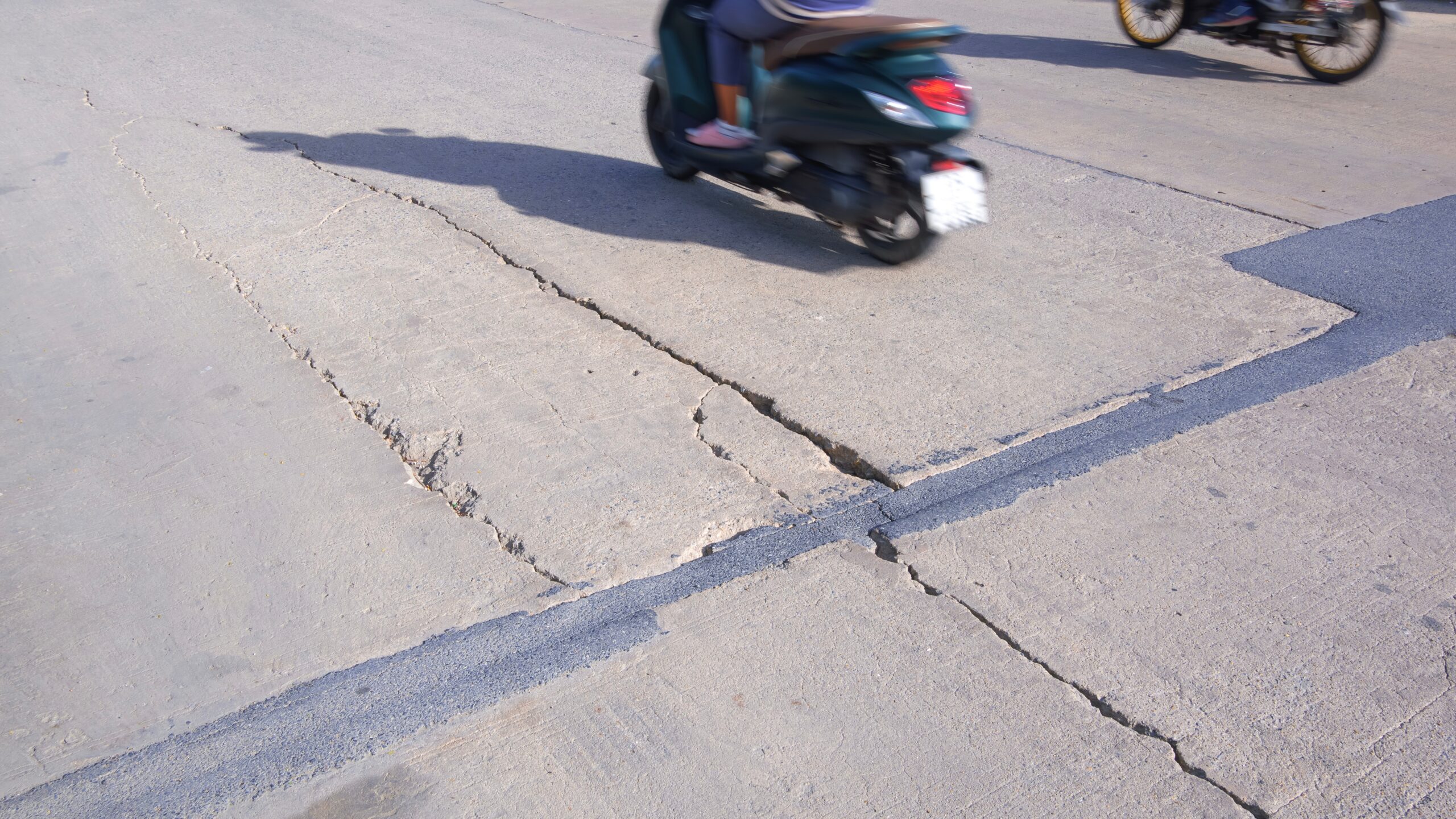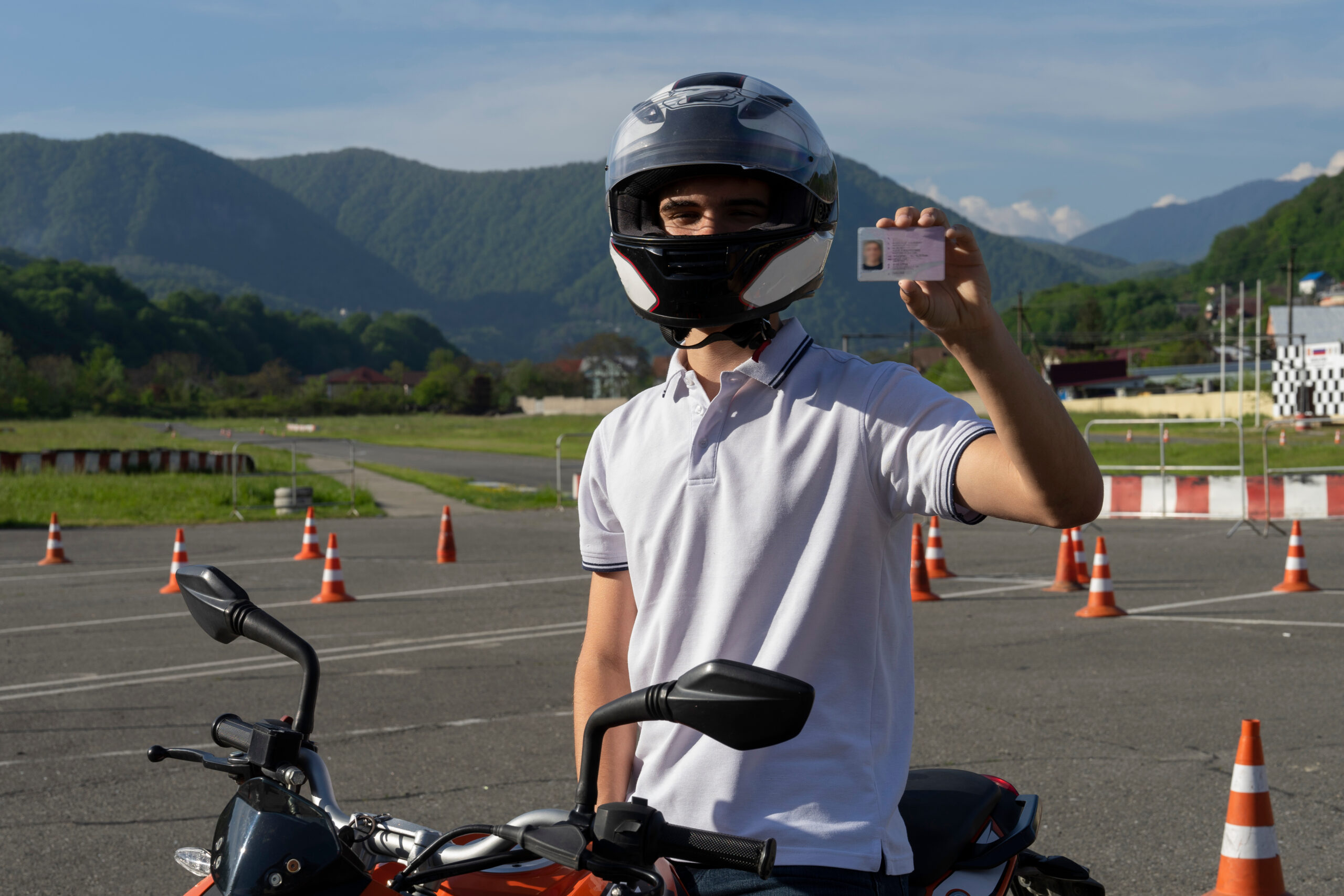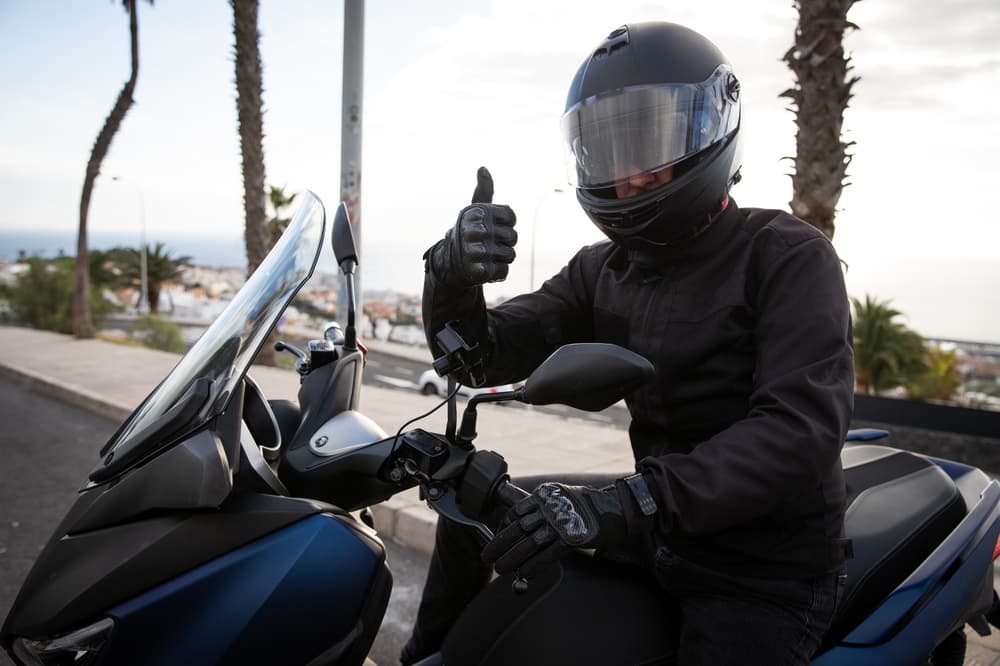There are several California motorcycle laws that motorcyclists should be aware of. However, the greatest danger to motorcyclists comes from those driving cars, trucks, SUVs, and other motor vehicles. Therefore, it is just as important that motorists of four-wheeled (or eighteen-wheeled) vehicles understand and abide by traffic laws in California.
Anyone who suffers injuries in a motorcycle accident should immediately discuss their options with a motorcycle accident lawyer who regularly represents injured motorcyclists.
Must-Know Laws About Motorcyclists in California
By and large, motorcyclists follow the same traffic laws that those driving motor vehicles follow. From speed limits to lane-change procedures, motorcyclists must operate their bikes in a manner that protects themselves and others from bodily harm.
However, some differences in the law relate directly to motorcyclists. Lane splitting is one of those unique laws.
California Vehicle Code 21658.1 (a) defines lane splitting as:
“Driving a motorcycle, as defined in Section 400, between rows of stopped or moving vehicles in the same lane, including on both divided and undivided streets, roads, or highways.”
Lane splitting is legal in California, as it can help reduce traffic and allows experienced motorcyclists to avoid sitting in traffic unnecessarily. While the California Highway Patrol (CHP) advises that inexperienced riders avoid lane splitting and that experienced riders exercise caution and discretion when splitting lanes, the act of lane splitting is permissible by California Law.
Motorists Must Respect Motorcyclists’ Right to Split Lanes
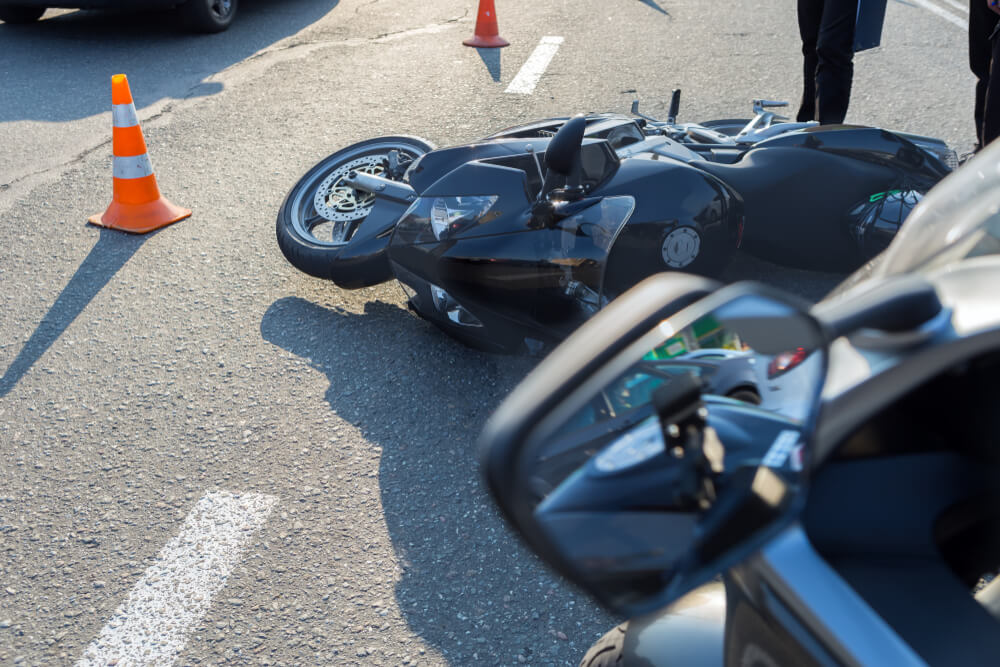
It is safe to assume that many motorists in California don’t know the law regarding lane splitting. Most motorists may see motorcyclists lane splitting and assume they’re engaging in an illegal act, similar to when somebody drives on the shoulder to bypass traffic.
If a motorist believes lane splitting is illegal or fails to exercise caution and awareness, they may knowingly or unknowingly put a lane-splitting motorcyclist at risk.
When a motorcyclist travels between vehicles by splitting lanes, a motorist may not endanger them by:
- Changing lanes without checking blind spots
- Changing lanes believing that there is enough clearance to avoid the oncoming lane splitter
- Failing to keep their vehicle centered within the lane
- Veering over the lane-dividing line
- Opening their door, especially without checking for oncoming lane-splitting motorcyclists
A lane-splitting motorcyclist is already operating in close confines. If a motorist reduces the distance between lanes even a bit, it can cause the motorcyclist to lose their balance, strike one or more vehicles, and suffer injuries.
A motorist whose actions cause a lane-splitting accident may need to pay for the resulting injuries to the motorcyclist.
Important Traffic Laws That Every Motorist in California Must Respect
Respecting motorcyclists’ right to split lanes is hardly the only law that California motorists must abide by. Yet, motorists drive dangerously on California streets daily, causing accidents that result in injury and death.
Some of the most important traffic rules that motorists disobey to tragic results are:
- Speed limits: Some motorists treat speed limits as suggestions rather than mandates. Experts set speeds where they are for a good reason: to keep motorists and motorcyclists safe. The National Highway Traffic Safety Administration (NHTSA) reports that speeding motorists killed 11,258 people in a single year, including motorcyclists.
- Sober driving requirements: The California Office of Traffic Safety (OTS) found that 50 percent of drivers killed in motor vehicle accidents had legal or illegal drugs in their system. Drunk driving also remains a fatal threat to motorcyclists in California.
- Stop signs, yield signs, and traffic signals: Motorists who blow through stop signs (even rolling stops), run red lights, and fail to yield to oncoming traffic put lives at risk.
- Yielding the right of way even when no sign is present: The right of way is one of the less concrete rules of the road. Therefore, motorists must exercise immense caution when turning onto a street, changing lanes, and making other traffic maneuvers. If a motorcyclist has the right of way, it’s the law to respect that right of way.
- Tailgating: A motorist is liable when they drive too closely behind another vehicle (including motorcycles) and cause an accident. While motorcyclists can often stop more quickly than other vehicles, larger motor vehicles take a longer distance to stop. Therefore, motorists must always maintain a safe distance behind a motorcyclist.
Much goes into safe driving. Even when a motorist technically obeys the law, they can put others at risk when they act obliviously, emotionally, or recklessly. Regarding motorcycle accidents, the cost of motorists’ negligence is often far more than property damage.
Motorcyclists Are Especially Vulnerable to Other Motorists’ Negligence
In a motor vehicle, you have several layers of protection from injury. The frame of the vehicle, seatbelt, and airbags are three such layers between you and potential injury. A motorcyclist, on the other hand, only has a helmet and whatever padding they may have in their clothing.
This physical exposure means that motorcyclists face the potential of:
- Direct contact between a motor vehicle and their body
- Being thrown from the motorcycle onto the roadway
- Being launched into signs, motor vehicles, medians, traffic signals, and other hazards that may cause severe injury or death
One or more of these outcomes is virtually guaranteed when a serious motorcycle accident happens. Rarely does a motorcyclist remain on their bike when a motor vehicle strikes them.
Therefore, resulting injuries may include:
- Traumatic brain injury (TBI)
- Broken bones
- Internal bleeding
- Puncture injuries
- Severe burns and scrapes
- Amputation injuries
- Spinal cord injuries
In other words, a motorcyclist faces potentially life-changing, disabling, and fatal injuries whenever they’re in an accident. This likelihood underscores the importance of motor vehicle drivers using abundant caution.
Aside from Motorists, What Causes California Motorcycle Accidents?
While motorist error is the most common cause of motor vehicle accidents (in California and across the United States), several other hazards can cause motorcycle accidents.
Potential causes of a motorcycle accident in California include:
- Defective motorcycle or motor vehicle components: If a key component in a motor vehicle or motorcycle malfunctions, the defect can cause an accident. Brakes, tires, and steering columns are three parts that, if they fail, can have catastrophic outcomes.
- Dangerous roads: Much of California is known for having less-than-perfect roadways, and motorcyclists may be most vulnerable to potholes, uneven surfaces, and other imperfections in the road.
- Poorly positioned work crews: If a work crew is in a dangerous position, it can suddenly cause vehicles to change lanes. A motorcyclist may even collide with a member of a work crew or barrier because the crew is in a dangerous location.
- Defective traffic signals or signs: California has many traffic signals and related rules, each of which serves an important purpose. A serious motorcycle accident can result if a single signal is down or a single traffic light stops working.
- Hazards in the road: When humans, debris, or other hazards enter the road, it poses a serious risk. Motorists may need to swerve or brake suddenly to avoid a collision, putting others at risk as a consequence. A motorcyclist can collide with a pedestrian or debris.
There is a liable party for each of these accident scenarios, and sometimes more than one liable party. Liability can fall to a vehicle manufacturer, municipality, or someone else.
It is not always clear what causes a motorcycle accident. Many victims hire an attorney to investigate the collision, determine its cause, and identify liable parties.
What to Do After a Motorcycle Accident
Motorcyclists should seek medical attention immediately following their accident and often face no choice in doing so. In many cases, a motorcyclist may ride to a medical facility in an ambulance due to serious injuries.
Any lawyer should urge you to continue receiving regular medical treatment. If you have lost a loved one due to injuries from a motorcycle accident, you should consider counseling or other treatment for your grief. Your well-being is paramount.
Once you have tended to your mental and physical health, you should hire a motorcycle accident lawyer.
Your attorney can:
- Protect you from liable parties, insurance companies, and any others who may want to assign fault to you or your loved one (compromising a potential financial recovery in the process)
- Secure all relevant evidence, which may be time-sensitive
- Advise you on your option for seeking compensation.
- Immediately take over all case-related responsibilities.
Your attorney can advise, protect, and represent you after a motorcycle accident.
How a Motorcycle Accident Attorney in California Can Assist Victims and Loved Ones Affected by a Wreck
Once you hire a lawyer, you can expect them to manage every step of your case. Your lawyer will take the lead whether you pursue an insurance claim or lawsuit.
In addition to protecting you from liable parties and securing evidence, your attorney will:
Determine Liability for the Motorcycle Accident
Upon gathering details, witness testimony, evidence, and other useful information, your lawyer will determine who is liable for the motorcycle accident. Liable parties will likely include anyone who directly caused your accident. Other parties who did not directly cause the accident—the employer of an at-fault motorist, for example—may also be liable.
Get Documentation of Damages
Your lawyer will aim to prove all of your accident-related damages and may use:
- Invoices for motorcycle repairs and other property expenses
- Medical bills
- X-rays, CT scans, or other medical images of your injuries
- Expert testimony about your injuries (the opinions of medical experts and mental health experts may be helpful)
- Any other documents or testimony that prove your damages
Your lawyer’s goal should be to remove any doubt that your motorcycle accident has caused the damages you’re seeking money for.
Calculate an Accurate Settlement Target
Your lawyer will consider both economic (financial) and non-economic damages when calculating a settlement target. Having a lawyer can be very helpful when calculating non-economic damages in particular.
Lawyers have reliable methods for calculating non-economic damages like pain and suffering. Relying on a lawyer, rather than trying to calculate your own damages, may produce a more accurate and fair settlement target.
Start and Finish Settlement Negotiations
Your lawyer can initiate settlement talks with liable parties, including insurance companies. Your attorney will negotiate on your behalf throughout settlement discussions.
Determine Whether to Take Your Case to Trial (and Complete the Trial, If Necessary)
An attorney should always be willing to take a case to trial if it is in their client’s best interests. Generally, a lawyer will only take a case to trial if liable parties will not offer the settlement amount that the client deserves.
Recoverable Damages in California Motorcycle Accident Cases
The severity of motorcycle accidents means that victims may suffer costly damages, including:
- Medical expenses
- Lost income
- Diminished earning power
- Pain and suffering
- Disabilities, which may require medical equipment and cause severe pain and suffering
- Property damage, including damage to the motorcycle
Motorcycle accidents also cause wrongful deaths. This tragic outcome imposes great pain and often financial hardship on survivors.
Recoverable damages in a fatal motorcycle accident case may include:
- Funeral expenses
- Lost financial support, including the loss of the decedent’s future income
- Any pain and suffering the motorcyclist experienced before passing away
- The pain and suffering of surviving loved ones
- The cost of grief counseling and other grief-related treatment
- Loss of the decedent’s household contributions
- Loss of spousal companionship
- Loss of parental guidance
When accidents happen, motorcyclists face a far greater risk of dying than motor vehicle occupants do. The sudden loss of a loved one often takes a great toll on survivors, who are often not in a position or mentality to even think about beginning a legal case.
You can focus on the grieving process while an attorney seeks justice for you and the decedent.
Don’t Wait to Hire a Motorcycle Accident Lawyer Serving Your California Community
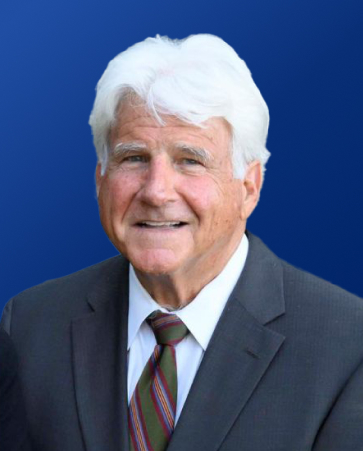
California imposes a statute of limitations on most personal injury and wrongful death lawsuits, and insurers may require that you file a claim within a certain timeframe. If you wait too long to file your case, you may forfeit the chance to seek compensation.
Find a qualified law firm in your area and hire a personal injury attorney in California as soon as possible. Your financial recovery might depend on it.
GALINE, FRYE, FITTING & FRANGOS, LLP - SAN MATEO OFFICE
Address: 411 Borel Ave #500, San Mateo, CA 94402
Phone: (650) 419-0473
Fax: (805)-617-1365
Testimonial
Thank you so much for all of your legal help on my case. I’ve really enjoyed working with you and your professional team including Lisa and Mavis. I also appreciate your efforts in reaching a settlement on my behalf. I will definitely refer my clients and friends to your firm they are in need of legal representation in the future. Regards.
- ADRIAN C.
